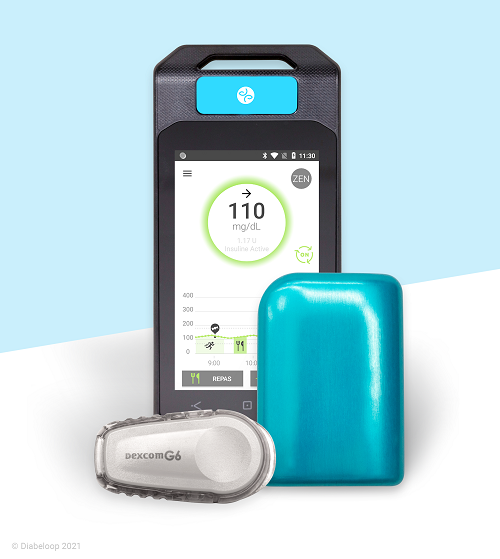Diabeloop develops automated insulin delivery solutions enabling diabetics to regulate their blood sugar levels. The company was founded in 2015 and has developed the first closed loop connected medical device mimicking the functions of the pancreas. By joining Nanoelec, Diabeloop aims to improve the security of its medical devices and is exploring new security strategies. A discussion with Erick Huneker, co-founder and CEO of Diabeloop.

Erik Huneker, CEO of Diabeloop (c) Diabeloop
You have entered into a consortium with Nanoelec for a program of work on cybersecurity. What is at stake here?
Developing technology in the health sector helps optimize the treatment of the patients and the ability of the health care personnel to treat them, but it can also lead to an increase in attempted cyber-attacks and the risk of health data leaks. The cybersecurity of medical devices is therefore today a major concern for the manufacturers and health and certification organizations, with the primary issues being to protect individuals as well as the integrity and confidentiality of their health data.
How are data processed in the Diabeloop devices?
Our first medical device consists of a continuous glucose measurement sensor and a terminal containing our self-learning algorithm which determines the insulin dose that the insulin pump needs to deliver. The data are transmitted to a display platform for the person equipped with our system and they can then choose to share access with their health care team and/or those close to them. It is the development of these reinforced data transfer mechanisms that will make sharing as flexible as possible, when and where the person so wishes.
What is your preferred approach at Nanoelec?
When it comes to our artificial intelligence systems, we have to deal with questions of operability (resistance to physical and logical attacks), authentication (proof of integrity) and confidentiality (resistance to reverse engineering). They must also be protected against the new types of attacks made possible by quantum computers, if this technology were to one day ever become a reality. The technical solutions to these problems proposed by Nanoelec and its partners in the Pulse program are in line with this strategy.
More broadly, we are looking to reinforce a generic framework for the cybersecurity of connected medical devices and for the standardization of security architectures in the health and IoT sectors.

The DBLG1 from the French manufacturer Diabeloop. (c) Diabeloop




